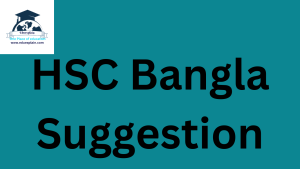The Right Use of Verbs সম্পর্কে বিস্তারিত এক নজরে সব
Related Posts
তৃতীয় শ্রেণি
সকল সাবজেক্টের অধ্যায়ভিত্তিক সমাধান ও পরীক্ষা প্রস্তুতি
চতুর্থ শ্রেণি
সকল সাবজেক্টের অধ্যায়ভিত্তিক সমাধান ও পরীক্ষা প্রস্তুতি
পঞ্চম শ্রেণি
অধ্যায়ভিত্তিক সমাধান ও বৃত্তি পরীক্ষা প্রস্তুতি
ষষ্ঠ শ্রেণি
অধ্যায়ভিত্তিক সৃজনশীল, জ্ঞানমূলক, অনুধাবনমূলক ও বহুনির্বাচনি
সপ্তম শ্রেণি
অধ্যায়ভিত্তিক সৃজনশীল, জ্ঞানমূলক, অনুধাবনমূলক ও বহুনির্বাচনি
অষ্টম শ্রেণি
অধ্যায়ভিত্তিক সমাধান ও জেএসসি পরীক্ষা প্রস্তুতি
নবম-দশম শ্রেণি
অধ্যায়ভিত্তিক সমাধান, মডেল টেস্ট ও এসএসসি পরীক্ষা প্রস্তুতি
একাদশ-দ্বাদশ শ্রেণি
অধ্যায়ভিত্তিক সমাধান, মডেল টেস্ট ও এসএসসি পরীক্ষা প্রস্তুতি
The Right Use of Verbs সম্পর্কে বিস্তারিত এক নজরে সব

এইচ এস সি বাংলা ১ম তৈলচিত্রের ভূত গল্পের বহুনির্বাচনী প্রশ্ন : বহুনির্বাচনী প্রশ্ন ও উত্তর
Admin
March 30, 2025
No Comments
READ ALSO এইচ এস সি বাংলা ১ম তৈলচিত্রের ভূত গল্পের বহুনির্বাচনী প্রশ্ন : বহুনির্বাচনী প্রশ্ন

এইচএসসি-২০২৪, পুনর্বিন্যাসকৃত পাঠ্যসূচি অনুযায়ী বাংলা প্রথম পত্র, অধ্যায়: আমার পথ (কাজী নজরুল ইসলাম)অধ্যায়ভিত্তিক জ্ঞানমূলক প্রশ্নের সাজেশন
Admin
March 30, 2025
No Comments
এইচএসসি-২০২৪, পুনর্বিন্যাসকৃত পাঠ্যসূচি অনুযায়ী বাংলা প্রথম পত্র, অধ্যায়: আমার পথ (কাজী নজরুল ইসলাম)অধ্যায়ভিত্তিক জ্ঞানমূলক প্রশ্নের

এইচ এস সি ২০২৫, জীববিজ্ঞান ১ম পত্র, অধ্যায় – ১ম : কোষ ও এর গঠন( বহুনির্বাচনী/MCQ)
Admin
March 30, 2025
No Comments
এইচ এস সি ২০২৫, জীববিজ্ঞান ১ম পত্র, অধ্যায় – ১ম : কোষ ও এর গঠন(

এইচএসসি-২০২৫ পরীক্ষা তথ্য ও যোগাযোগ প্রযুক্তি (৩য় অধ্যায়)প্রস্তুতির পূর্ণাঙ্গ মডেল টেস্ট-১ (বহুনির্বাচনী অংশ)
Admin
March 30, 2025
No Comments
এইচএসসি-২০২৫ পরীক্ষা তথ্য ও যোগাযোগ প্রযুক্তি (৩য় অধ্যায়)প্রস্তুতির পূর্ণাঙ্গ মডেল টেস্ট-১ (বহুনির্বাচনী অংশ) বিষয়: তথ্য
About
EduExplain শিক্ষার জগতে আপনার সঙ্গী। সহজ ভাষায় মানসম্মত কনটেন্ট তৈরি করে আমরা শেখাকে সহজ ও উপভোগ্য করি। আমাদের লক্ষ্য: শিক্ষাকে সবার জন্য সহজলভ্য করা।
Categories
Recent Posts
- এইচ এস সি বাংলা ১ম তৈলচিত্রের ভূত গল্পের বহুনির্বাচনী প্রশ্ন : বহুনির্বাচনী প্রশ্ন ও উত্তর
- এইচএসসি-২০২৪, পুনর্বিন্যাসকৃত পাঠ্যসূচি অনুযায়ী বাংলা প্রথম পত্র, অধ্যায়: আমার পথ (কাজী নজরুল ইসলাম)অধ্যায়ভিত্তিক জ্ঞানমূলক প্রশ্নের সাজেশন
- এইচ এস সি ২০২৫, জীববিজ্ঞান ১ম পত্র, অধ্যায় – ১ম : কোষ ও এর গঠন( বহুনির্বাচনী/MCQ)
- এইচএসসি-২০২৫ পরীক্ষা তথ্য ও যোগাযোগ প্রযুক্তি (৩য় অধ্যায়)প্রস্তুতির পূর্ণাঙ্গ মডেল টেস্ট-১ (বহুনির্বাচনী অংশ)
© 2024 All Copyright EduExplain



